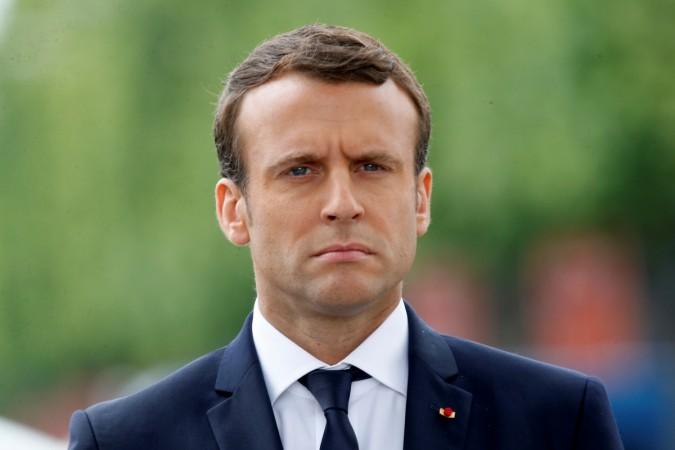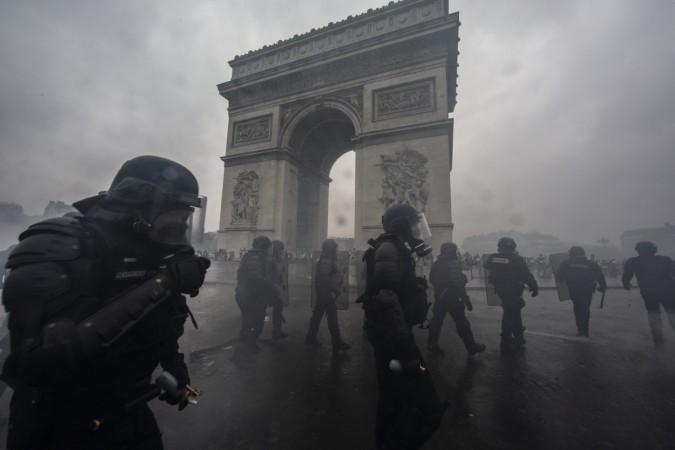
France is reeling under its worst civil unrest in the last 50 years. Calling the riots "the start of a revolution," masked protestors, have torched buildings, cars, and police posts and even looted shops in Paris. In a bid to calm these protestors, French President Emmanuel Macron on Monday, December 10, proposed a hike in minimum wage and also promised tax relief to citizens.
In a televised address, Macron said that he understood their "anger and indignation," and admitted that the concerns of the people have not been addressed properly and in a timely manner in the last one and half years. "There is anger, anger and indignation that many French share. I take my share of responsibility," news agency Xinhua quoted Macron as saying.
He also vowed to address the concerns of the French people promptly and efficiently and announced a minimum wage hike of 100 euros (113.52 U.S. dollars) a month January 2019 onwards. Macron also said that this would incur no additional cost to the employers.
"I ask the government and parliament to do what is necessary so that one can live better from his work from the beginning of next year," president Macron added.
In addition, he also said that any income earned from overtime would not be taxable and announced tax cuts for pensioners and end-of-year bonus to workers. However, he has said that the wealth tax would not be reviewed.
The reforms come almost one month after turmoil and while many appreciated Macron's actions, several others slammed it and labelled the steps "half measures."
Several Facebook groups, dedicated to the protests, discussed the measures and said that this wasn't enough. "There are a lot of forgotten," the New York Times quoted Bruno Ceneda, one of the users of the group as saying. "And the others only have the crumbs left."
"He is kidding us," another added.

The "Yellow Vests" protests, which started on a silent and mellow note, turned violent over the December 1 weekend. Protesters, many of whom are said to be thugs, carried clubs and axes and rampaged through monuments, supermarkets and other buildings in Paris. The iconic Arc de Triomphe was among the hundreds of buildings attacked and streets were lined with torched vehicles.
The riots have led to the arrest of over 400 people, and injured about 150 others, including 23 security personnel. The police then called for a State of Emergency to be declared and the Army was also asked to take to the streets for security.
The protests are in response to Macron administration's move to hike fuel tax in the country. Residents took to the streets in Paris to express their disapproval of the policy and believe that the move is in favour of the wealthy.

The Yellow Vests are protesters who are a part of the Yellow Vests Movement called the "Mouvement des gilets jaunes."
The protesters chose to don yellow vests for the protests as it is mandatory for all motorists in France since 2008 to have high-visibility vests in their vehicles when driving, hence making these vests easily available, inexpensive, and symbolic.









